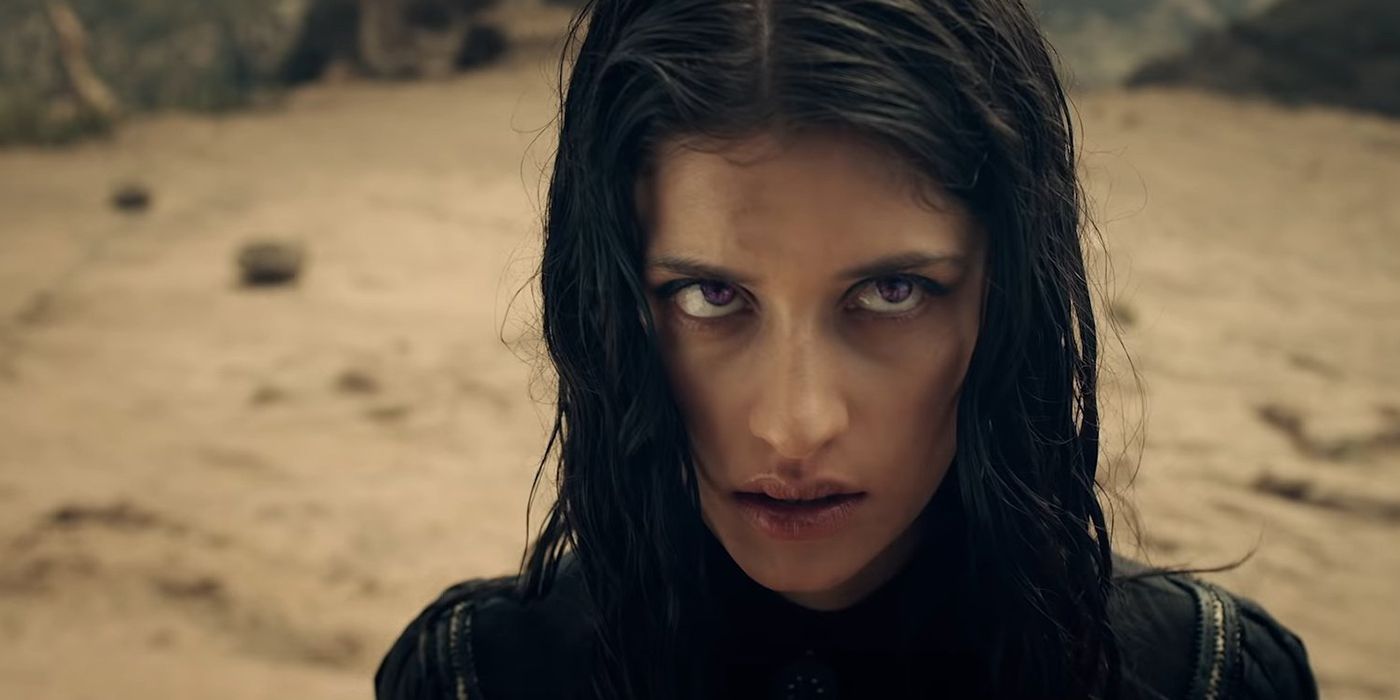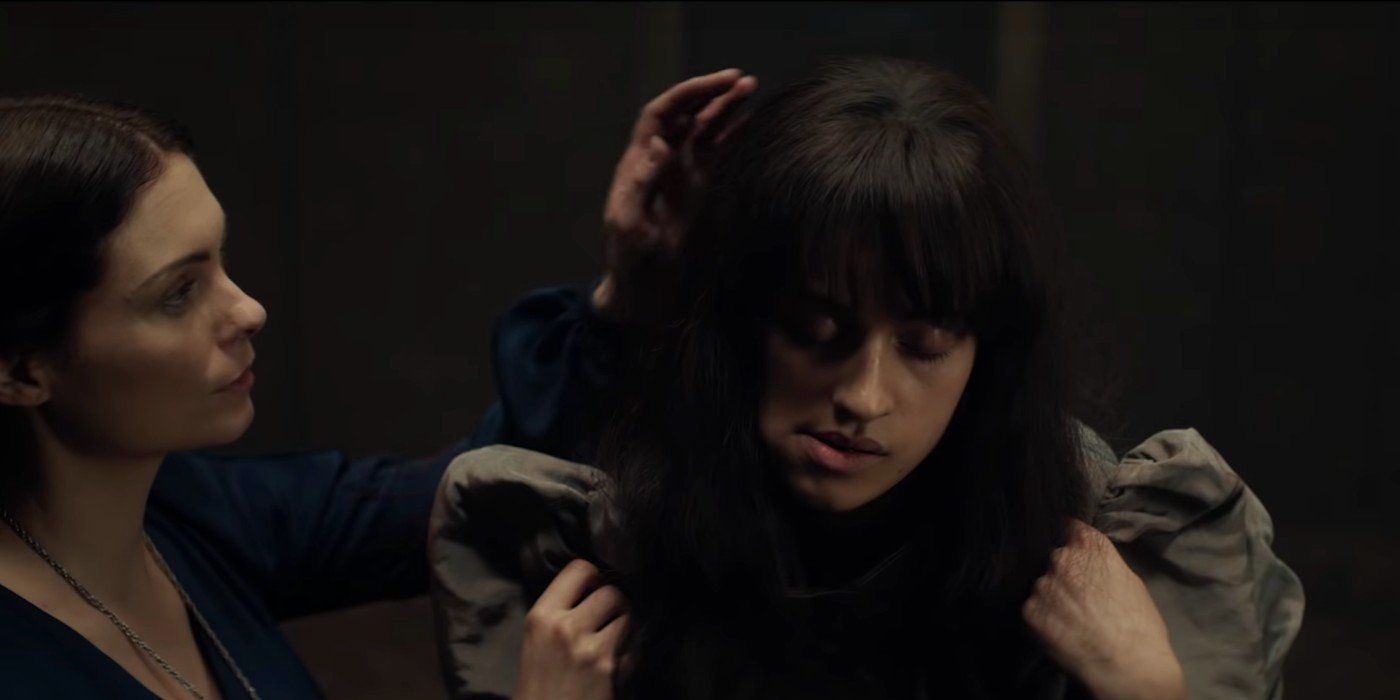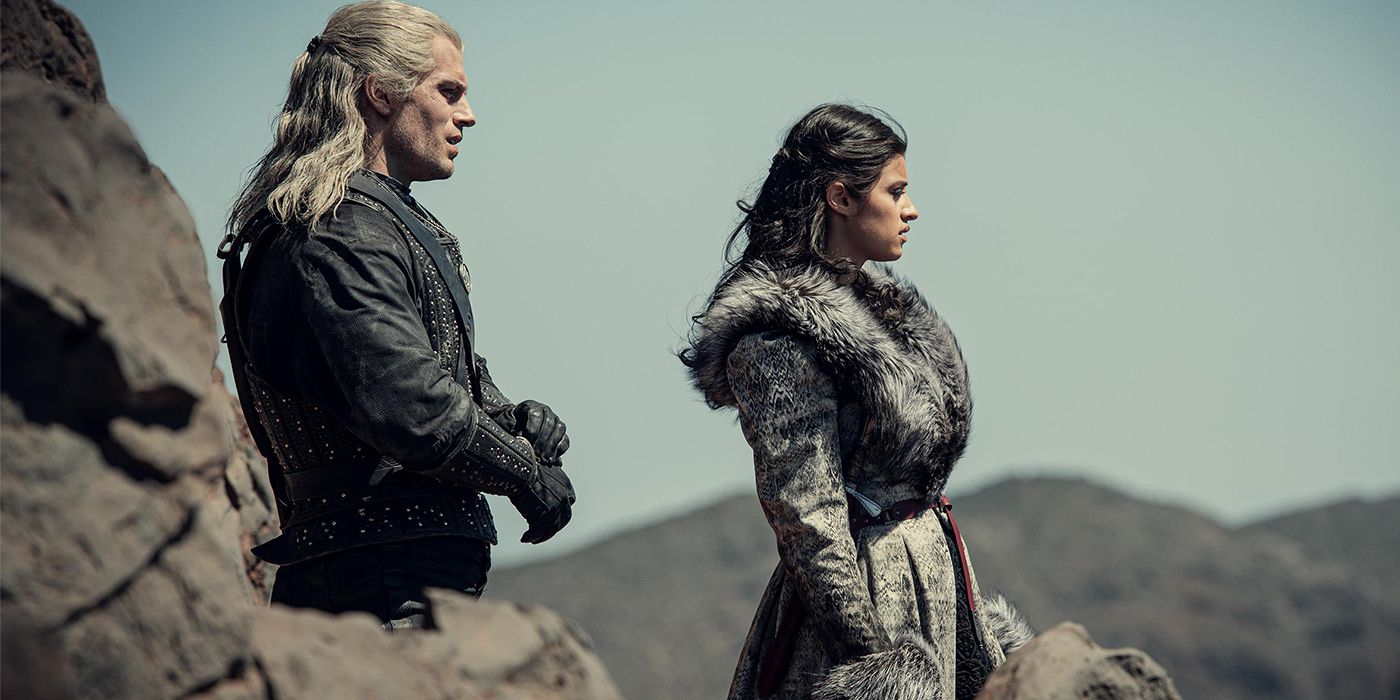Everything You Need to Know About The Witcher's Yennefer

By now, fans of Netflix's The Witcher have figured out that the show has a lot of moving parts, having been adapted from a long-running series of novels and written to span multiple (sometimes dizzying) timelines. As such, it might be time to get a few things straight about the show's main characters, beginning with one Yennefer of Vengerberg.
In case it's not already clear, The Witcher isn't actually one man's story. As prominent as Geralt of Rivia is, being the series' main protagonist, he's not the only character whose origins, powers, and goals are going to play a huge role in the series going forward. So for those who haven't picked up the books, here's everything that Witcher fans need to know about Yennefer going forward.
Anyone who has seen season 1 of Netflix's The Witcher will already be well aware that Yennefer is someone with devastating amounts of power in her arsenal as a sorceress--and an equally devastating amount of pain carried around in her heart. She's a complex character, one who might even lean towards the role of a villain in a different type of narrative. But instead, Yen walks a different path: she's ruthless, ambitious, devilishly smart, and ultimately a heroine of this story, forever bound to the fates of both Geralt and his Child of Surprise she has yet to even meet, Ciri.
Yennefer's early life was highly unpleasant, to say the least. She's born in Vengerberg, a city in the kingdom of Aedirn, and she certainly isn't born a powerful sorceress. Yen's childhood was one of misery, discrimination, and abuse at the hands of both her family and the people of her town, as she was born with a congenital hunchback and thus despised by those around her. After years of mistreatment and vitriol well into her young adult years, life had nearly broken Yennefer--until she was discovered by (and subsequently sold to) Tissaia de Vries, the headmistress of the magical academy Aretuza, as told in The Witcher episode 2, "Four Marks."
While the circumstances of meeting Tissaia were awful, Yennefer's life changed dramatically once she left Vengerberg. From there, her path led to her becoming one of the most powerful sorceresses to walk The Continent.
That's not to say Yen's years at Aretuza were easy; on her very first night in Aretuza, Yennefer attempts to commit suicide, which leaves deep scars on her wrists. Going forward, her tutelage was fraught with trials, and those students who failed the many tests had an unpleasant fate in store, as Yennefer discovered when she saw that Tissaia transforms "failed" students into eels to power Aretuza. Of course, Yen isn't one of those failures, though she herself is never quite satisfied by any of her own achievements.
Her time at Aretuza comes to a climactic end when she ultimately decides to physically transform, ascending as a full sorceress and stealing a position at the court of Aedirn away from fellow student Fringilla Vigo (which doesn't actually work out great, since Yen hates life at court and Fringilla eventually helps to bring a devastating war to the northern kingdoms). Notably, though Yen rids herself of her hunchback, she maintains a few key aspects of her old, original "Yennefer" look: her raven-colored hair, her violet eyes, and the scars on her wrists, as Geralt points out when they eventually meet.

As hinted above, Yennefer isn't any old sorceress. Despite her relatively young age, she's easily one of the most powerful sorceresses of her time, as demonstrated on a number of occasions during the show. Early on in Yennerfer's training at Aretuza, she and her classmates are instructed to capture lightning in a bottle, using that to channel their power. Yennefer, however, channels it through her own body, in a feat that no other sorceress is seen to replicate throughout the show. In one of the Witcher books, Time of Contempt, Jaskier (called Dandelion in the English version of the books and the games) describes Yennefer as the face of "the goddess of vengeance, destruction, and death."
And that description is fairly fitting, as in the show at Tissaia's urging to "forget the bottle" and "let your Chaos explode," Yen proceeds to drown a forest full of enemy soldiers in fire--for which she once again uses her own body as a conduit, just as she did all those years ago in Aretuza. It certainly helps that Yennefer has one-quarter elven blood; elves are the first and most powerful practitioners of magic on the Continent, so her connection undoubtedly amplifies her already considerable abilities. Nonetheless, it's clear in both the show and the books that blood isn't the main source for Yennefer's incredible magical prowess: her bold personality, ambition, emotion, and ability to harness her inner chaos are to thank for that.
To ascend as a sorceress and change her appearance, becoming the Yennefer of Vengerberg that we all know, Yen had to give up her womb and thus her ability to bear children. At the time, she thought it was a sacrifice that would let her have true happiness, but as the years go on Yen discovers that her looks, her lofty position at court, and all her powers still aren't enough to give her the satisfaction that she craves. After some time she abandons her position at court and begins wandering the continent, selling magic to those who can pay and seeking out a magical cure to her infertility; Yen comes to the conclusion that the thing she's missing in her life is a child, someone to carry on her legacy.
This desire is what eventually leads to her meeting with Geralt. By the time their paths cross, Yennefer is searching for rare, unstable forms of magic that might return her womb, including a wish made of a djinn. The same is true for the dragon hunt that they both embark on, as dragon organs possess potent magic of their own, and infertility is something that Geralt and Yen can commiserate over: witchers are made infertile through their own process of creation, and both transformations lead on to uncommonly long lives. By the time Geralt and Yennefer's timelines in The Witcher match up with Ciri's for the last couple episodes of season 1, Geralt is 103 and Yen is in her early to mid-70s.

While their relationship is a complicated one, Geralt and Yennefer are both able to soften and lower their guards around one another as they do with nobody else. Furthermore, their relationship is but one aspect of the family dynamic that (if the books and games are anything to go by) will eventually form between the two of them and Ciri. For just as Geralt becomes an adoptive father to Ciri over the course of his guardianship of her, Yennefer adopts Ciri as her daughter, and it is the deep love shared between the three of them that paves the way for every story to come in The Witcher.
In the books, Yennefer is called to train Ciri once the girl's ability to channel immense amounts of magic is discovered, and the two of them forge a deep bond--and it's very likely that fans will see this play out over the course of The Witcher's season 2. Out of the entirety of Yen's troubled and complex life, it is family and love that drive her above all else in the end, and as the show continues, those deep bonds will see the fantastically powerful Yennefer of Vengerberg moving mountains to protect them.
The Witcher season 1 is available to stream on Netflix now.

Post a Comment